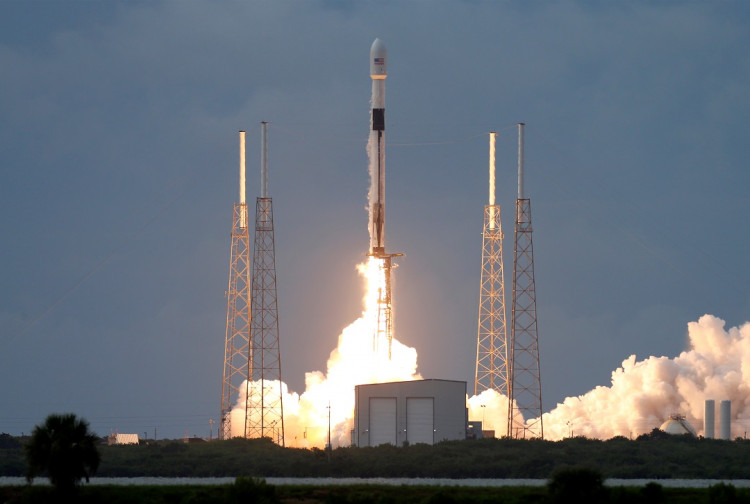SpaceX has decided to postpone the launch of 60 Starlink satellites originally scheduled Sunday morning, but it's not due to COVID-19. Just as the Falcon 9 was starting to fire at the Kennedy Space Center in Florida, an automated abort was triggered, and the system automatically shut down.
The Falcon 9 rocket carried SpaceX's last batch of broadband satellites, the company's fifth flight. According to reports, the company will again try to launch the satellites Wednesday morning Pacific time, more than any single SpaceX rocket has ever performed.
"Standing down today; standard auto-abort triggered due to out of family data during engine power check," a tweet from the SpaceX Twitter account read.
SpaceX already has 300 of its nascent nodes launched to low-Earth orbit. By the end of 2020, the Elon Musk-headed company should have over 1,500 floating in space.
It's an ambitious goal for SpaceX, whose plans include to successfully launch 42,000 satellites in space. The humongous constellation should beam ultra-fast internet to just about anywhere on Earth.
SpaceX's Starlink project has its fair share of comments from experts and professionals, both good and bad. Last year in May, astronomers began to express their concerns about the extra brightness of the routers when the fist satellites were deployed. According to scientists, there's a possibility the brightness could interfere with other scientific investigations.
The European Southern Observatory even claimed that the Vera C. Rubin Observatory, which is being constructed in Chile, would be "severely affected" by Starlink and other mega-constellations other companies are planning, including Amazon and OneWeb.
However, Musk was quick to dispel ESO's claims and said that the brightness will not be an issue. "We'll take corrective action if it's above zero (impacts)," Musk said Monday in an interview at Satellite 2020. "We're running a bunch of experiments."
SpaceX continues to pursue its plans of providing low-latency, high-speed internet and is in the process of sending out over 4,000 Starlink satellites in space.
While the FCC has given SpaceX the go signal to launch only 12,000 satellites, the company has already filed the paperwork so they can send out over 40,000.
While there have been delays and with the ongoing coronavirus crisis, SpaceX continues to ramp up satellite launches to remain the frontliner in mega-constellations. The company aims to meet FCC's requirement of sending out at least 2,212 satellites to low-orbit Earth within four years' time.






